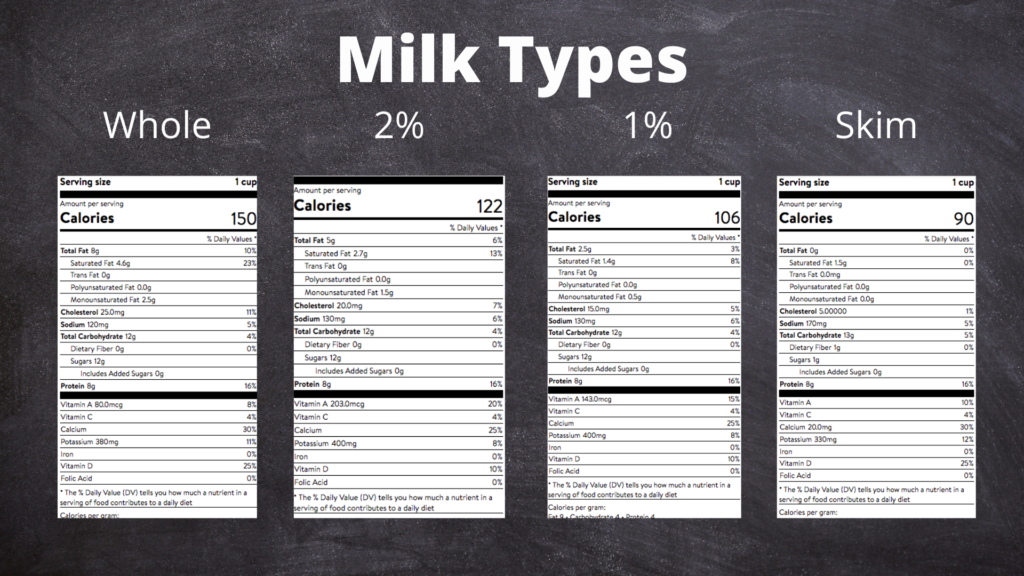
Milk is a common food that is consumed by most people. There are even alternatives for those that are lactose intolerant or do not want to consume dairy. Milk in my opinion, is one of the most important and beneficial foods on the planet. Mammals strictly consume milk in the early stages soon after birth. Humans consume milk exclusively for 6 months and introduced other foods gradually following birth.
Macro Nutrients include, fat, protein and carbohydrates. Milk contains all of these important nutrients essential for our growth and development. Both protein and carbohydrates contain 4 calories per gram and fat has 9 calories per gram.
So how can you utilize this daily food to your advantage in order to lose or gain weight? The answer is assuming you drink at a minimum of 1 cup of milk per day for 365 days of the year and assuming the food is digested on a normally functioning metabolism. There is variation on how much the body stores for use later, consumed for depleting stores, and how much is excreted as waste. Everyone reacts, digests and processes foods differently; so to say this will work for everybody would not be true. It is also assuming every measured cup of milk contains exactly 1 cup of milk with exactly the same amount of macro nutrients in every serving. Hence the data I’m presenting is merely an estimate of what to expect.

Based on data I have gathered from Great Value Milk purchasable at Wal-Mart:
- Whole milk contains about 8 g of fat per serving or 2920 g of fat per year or 6.4 pounds of fat per year
- 2% milk has 5g of fat per serving or 1825 g per year or 4 lbs. of fat per year
- 1% milk has 2.5g of fat per serving or 912.5 g per year or 2 lbs. of fat per year
- Fat free or skim milk has zero fat and thus adds 0 lbs. of fat per year.
Carbohydrates hover at about the same thorough each of the 4 milk types at 13-12 grams per serving and Protein remains the same through all 4 milk types at 8 grams per serving.
In conclusion, if you are already consuming whole milk, you could lose about 2-6.4 pounds of fat per year simply by choosing milk with less fat content. The same goes in reverse, if you are looking to gain weight and you are already consuming skim milk, you could gain 2-6.4 lbs. per year simply from switching to milk with a higher fat content. Now imagine if you did this with all of your food and much weight you could lose or gain based on consuming more or less of the foods you already eat. One cup of milk is only about 5% of what needs to be consumed on a normal 2,000 calorie diet!
Is there a nutrition, fitness or wellness topic you would like to read about? Let me know on one of my social media platforms or on my blog contact form!